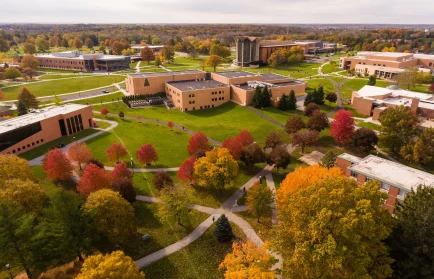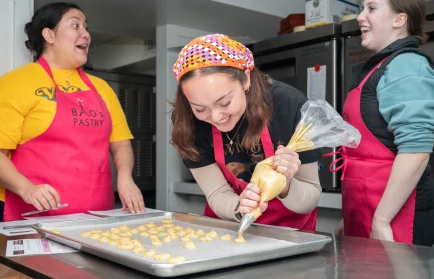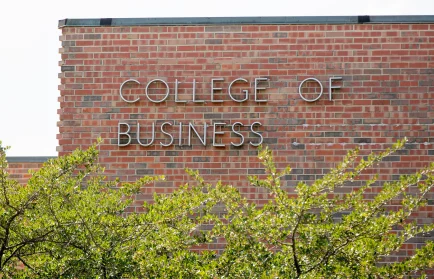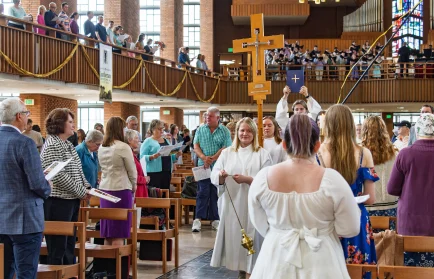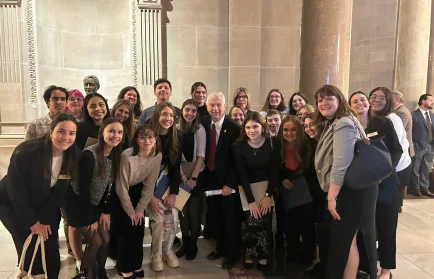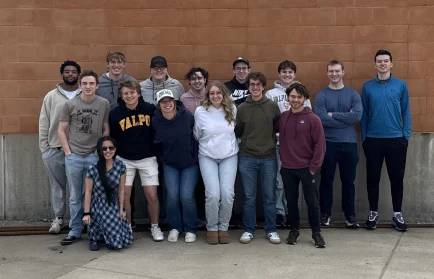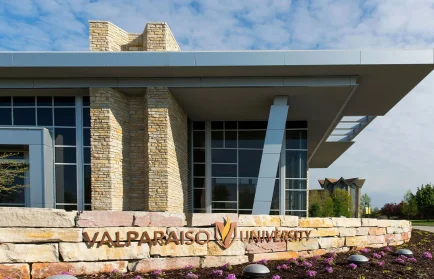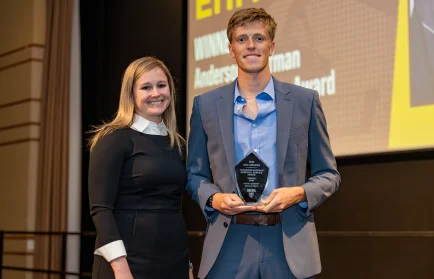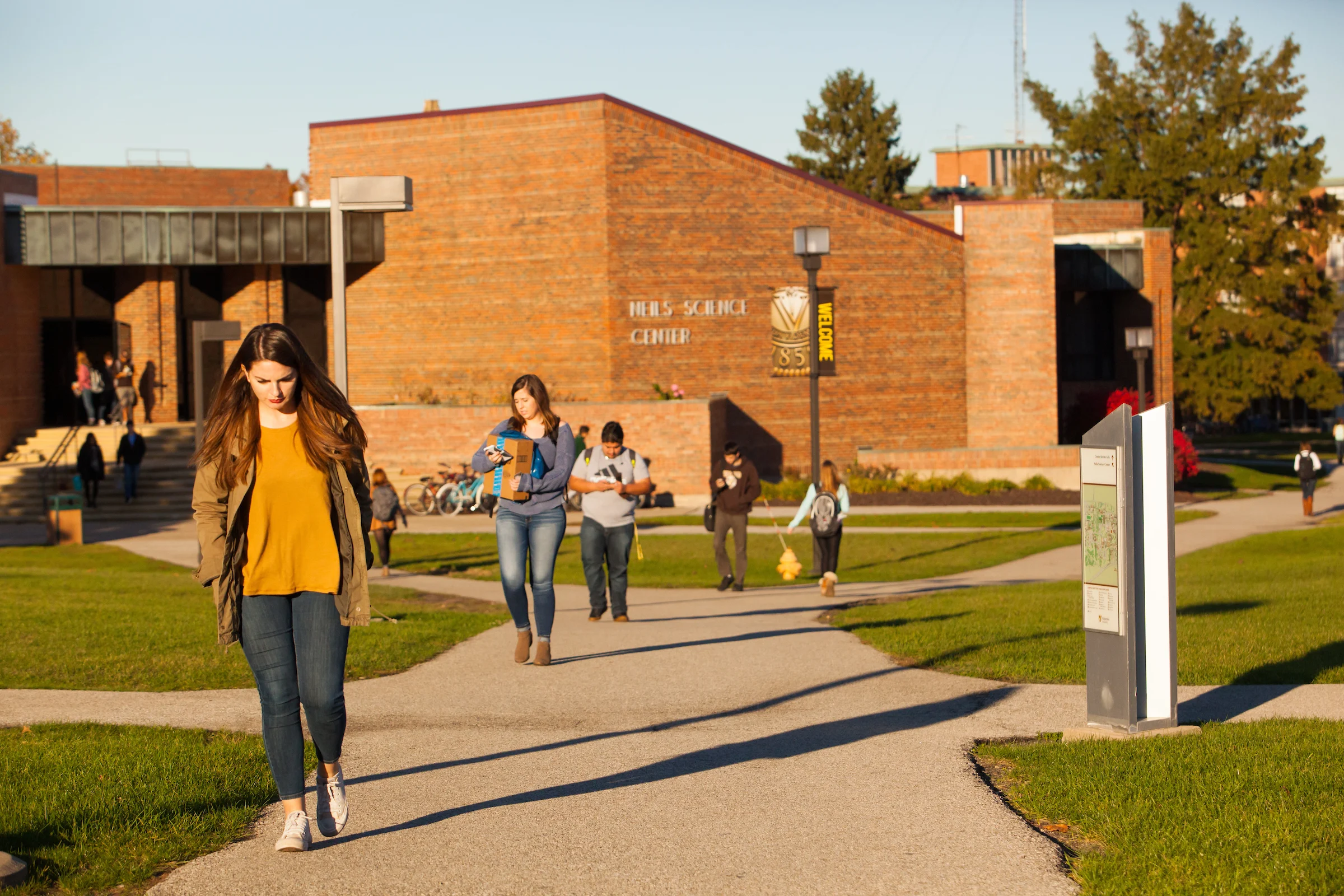Facilities
Biology Department
Neils Science Center & Center for the Sciences
Biology courses at Valpo take place in either the Neils Science Center (NSC), or the new Center for the Sciences: Chemistry & Biochemistry (CFS). Both facilities support cutting-edge laboratory teaching and learning, and also include comfortable, digitally-connected classrooms and labs.
Biology students have access to the department’s greenhouse, herbarium, cell culture laboratory, and a well-equipped microscopy laboratory. The department also has lab spaces dedicated to student investigations and faculty research. For example, in the new CFS, biologists and biochemists share a beautiful, spacious interdisciplinary research lab, which allows faculty members and students from two departments to “rub elbows” and interact with one another.
The department is also well-equipped for laboratory work in molecular biology and cell culture. Recent equipment acquisitions include:
- 4 thermal cyclers for polymerase chain reaction experiments
- two manual DNA sequencing chambers
- agarose gel electrophoresis equipment
- 2 superspeed centrifuges
- 2 preparative centrifuges
- a NanoDrop spectrophotometer
- 2 Bio-Rad Chemi-Doc imaging systems
Valpo’s cell culture lab is equipped with:
- two laminar flow hoods
- a new, microprocessor-controlled water-jacketed carbon dioxide incubator
- a mega-pure water system
In August, 2018, the department dedicated its state-of-the-art human cadaver laboratory, which is housed in NSC. This lab is used by advanced biology majors, most of whom are pursuing the premedical educational track. The Valparaiso University cadaver lab is one of a few undergraduate only cadaver laboratories in the state of Indiana.
Biology Department
Regional Resources
The biology department makes extensive use of the abundant biological resources in the greater Valparaiso area. Classroom field trips, research projects, and Biology Club service days allow students to benefit from local and regional assets.
The Indiana Dunes National Lakeshore and Lake Michigan are living laboratories, situated just 15 miles north of Valparaiso University’s campus. The Indiana Dunes ranks third of all U.S. National Parks in species diversity, and is where scientists first documented ecological succession. As such, the lakeshore allows students and faculty easy access to investigate ecological relationships.
Valparaiso University has a partnership with the Pierce Cedar Creek Institute, a biological field station in southern Michigan. Set on 661 acres in rural Barry County, PCCI provides students and faculty with another opportunity for outdoor education. The property includes a diversity of habitats: wetlands, forests, marshes, streams, lakes, and prairies.
Valpo students can also apply for PCCI’s undergraduate scientific research grants, for student/faculty summer research collaborations at the field station. Students who are accepted into the program receive housing at PCCI, a sizable stipend, and the opportunity to conduct a full-time, 12-week research project alongside a faculty mentor.
Contact the Department
Valpo welcomes inquiries from prospective students, fellow researchers, and community members.
Department Chair: Robert J. Swanson, Ph.D.
Biology department
Neils Science Center & Center for the Sciences
1610 Campus Drive East
Valparaiso, IN 46383
